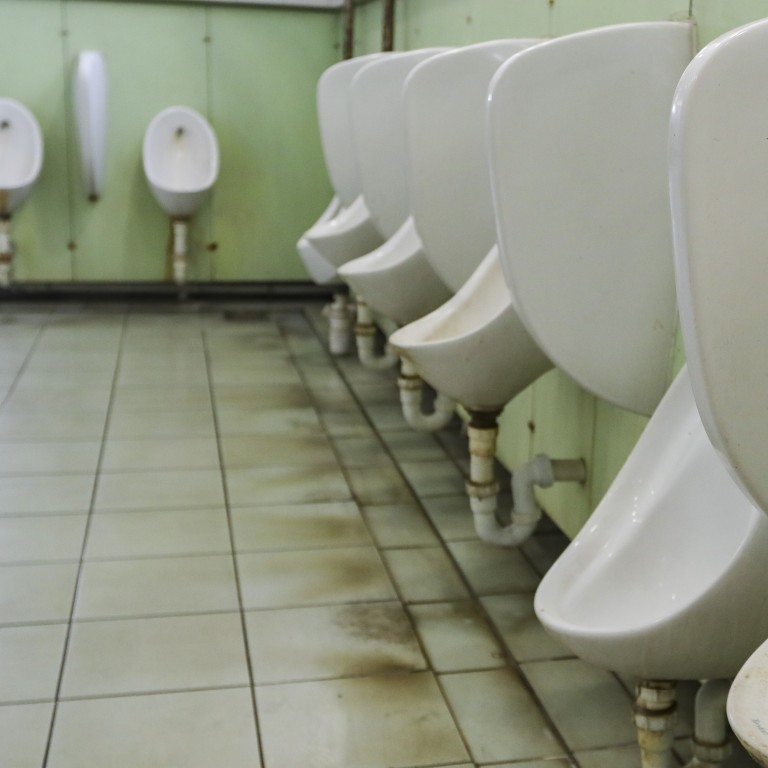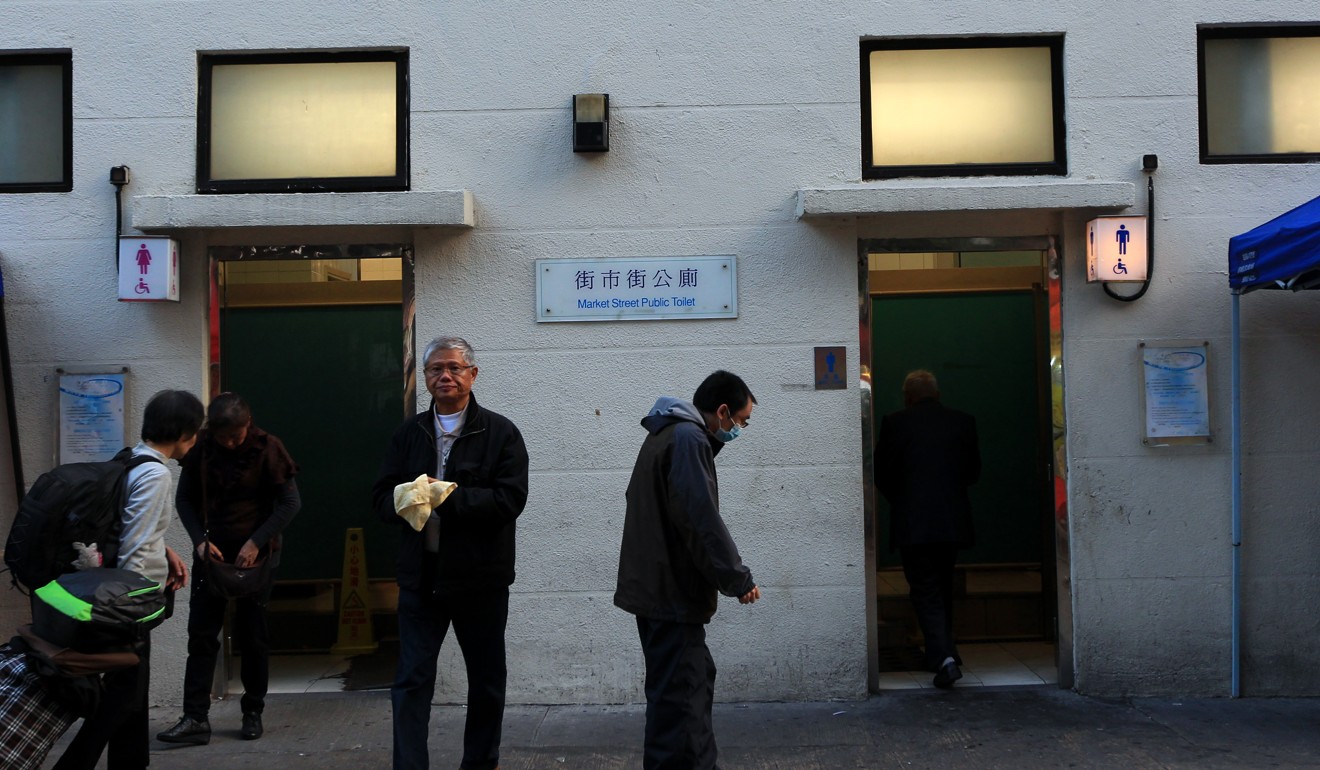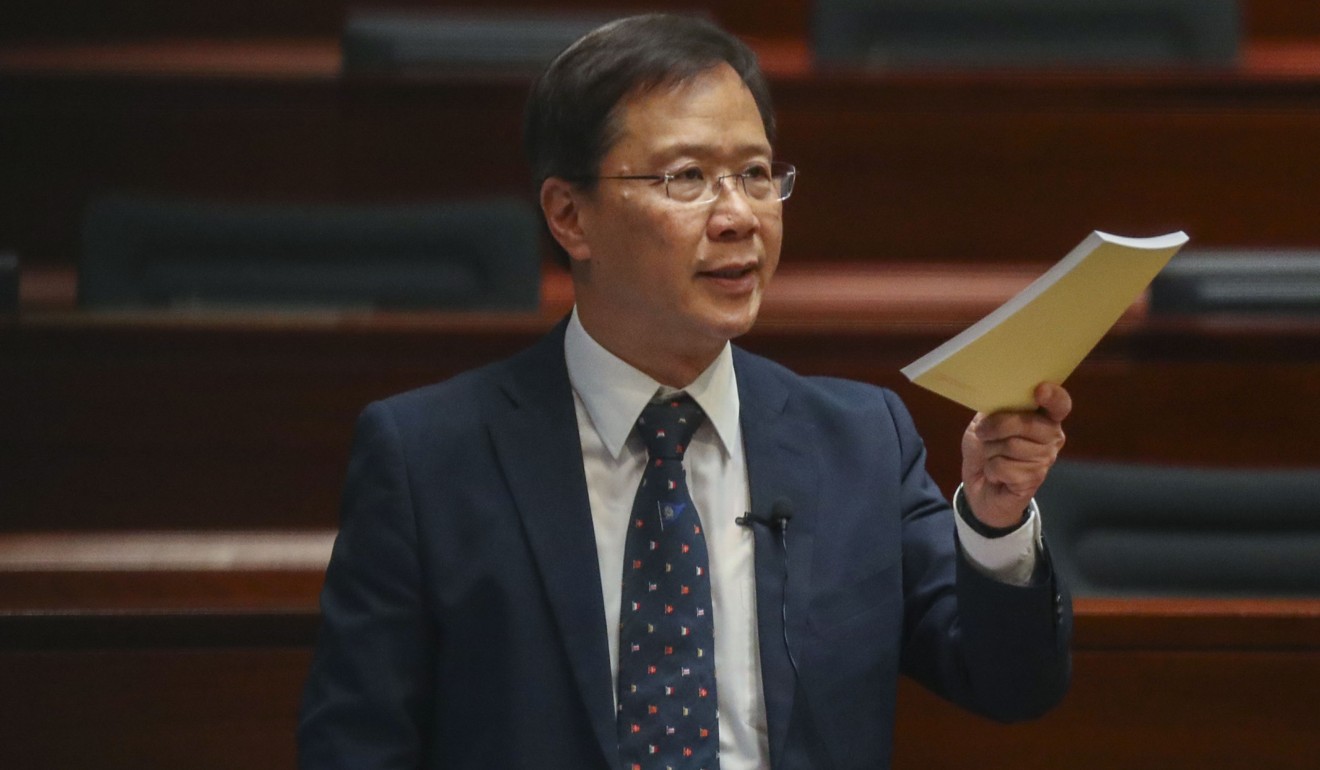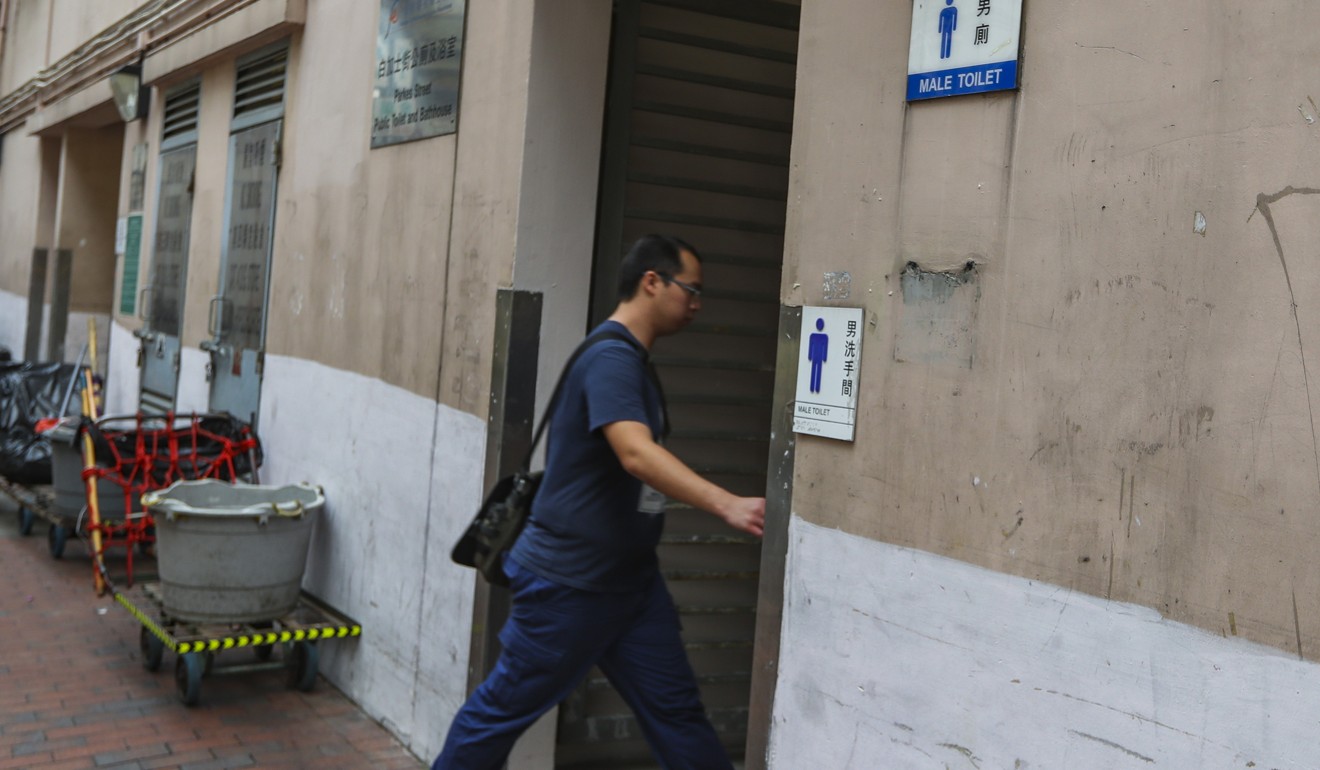
HK$500 million expected in budget to upgrade Hong Kong’s toilets, but what can city learn from Singapore’s clean experience?
- Advocates say amount to revamp 200 facilities not enough without maintenance and public education
- Authorities urged to look into regular checks, tender system for contractors and better wages for cleaners
An injection of about HK$500 million (US$64 million) to upgrade Hong Kong’s public toilets will not be enough to flush away their foul reputation if authorities do not also step up maintenance and public education, campaigners have said.
On Monday, advocates said Hong Kong should learn from Singapore, where public toilets are squeaky clean, “reminding people of a garden, with plants and sounds of birds chirping”.
The funding for 200 public toilets in the city is expected to be announced in Wednesday’s budget address. Hong Kong’s lavatories have been criticised for being smelly, dirty and clogged.

The 200 washrooms slated for upgrades form a quarter of such facilities under the Food and Environmental Hygiene Department (FEHD), while agencies such as the Leisure and Cultural Services Department also manage other toilets.
Speaking on a radio programme, lawmaker Kwok Ka-ki said if money was only spent on hardware and not maintenance, the facilities would probably fall back into their sorry state in a year.
Relief for foreigners amid China’s public toilets makeover ... but there’s room to improve
He also said the outsourcing system for maintaining public toilets contributed to the problem.
“If you go for the lowest bid, it will not help,” said Kwok, who is also chairman of the Legislative Council’s panel on food safety and environmental hygiene.

“If you respect the job, you should not go for the lowest bid, and you should end the contract if the company is not delivering.”
Kwok also criticised repair procedures for faulty toilets, which require the preparation of a tender from the Architectural Services Department, resulting in a long waiting time.
“How can Hong Kong not know how to manage toilets?” Kwok asked, pointing out how restrooms in shopping malls were kept in much better conditions.
How can Hong Kong not know how to manage toilets?
Henry Hung, vice-president of the Toilet Association, who recently visited a public restroom in Yau Ma Tei, noted that four out of eight cubicles were under repair.
“The water was coming out of the toilet bowl and there was a foul smell,” he said.
Hung questioned if FEHD staff were checking on the toilets. He also pointed out that HK$2.5 million per restroom – under the expected HK$500 million for 200 facilities – was not a lot, as extensive renovation works were required and clogged pipes had to be changed.
China’s toilet revolution: why you no longer have to fear its dirty squat toilets
Hung and Kwok suggested that Hong Kong learn from the cleanliness of Singapore. According to Hung, who visited the Lion City last week, public toilets were mostly clean and reminded him of a garden sanctuary lined with plants and echoing with bird calls.
Kwok noted that, for more than a decade, Singapore had in place a grading system for citizens to rate the cleanliness of public restrooms.
He said if Hong Kong had such a scheme, it could force authorities to improve toilets with low ratings.

A retired FEHD staff member, who called in to the same radio programme on Monday, said Hong Kong could also take reference from Singapore, which empowered workers to take action on inconsiderate users.
He cited how a previous colleague who worked in Singapore for a while managed to fine a man for not flushing the toilet.
Kwok said cleaners should be paid better – between HK$15,000 and HK$16,000 a month – for the undesirable and hard work. He said they were typically paid between HK$7,000 and HK$9,000.
He urged the government to repair toilet facilities using relevant staff or contractors, instead of going through the lengthy tender process under the Architectural Services Department.
Hung said it was important to build a culture of treating public properties well, through education and media promotion.

